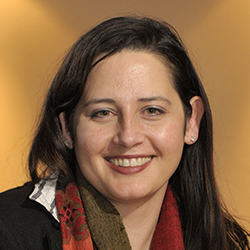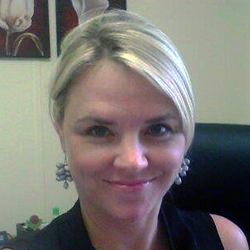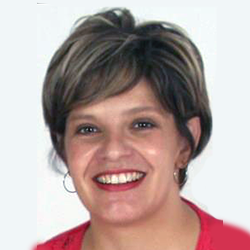
The largest provider of business education in Africa and one of the largest in the world

Prof Annemarie Davis
The internet gives access to all kinds of information to researchers and offers opportunities to all disciplines to do online research. With some 38.13 million active internet users in South Africa, the research landscape has changed. Online research is growing, and it raises important questions regarding the ethical nature of online research. This issue was raised by speakers at a session about Ethics in the age of technological disruption: Ethical issues in online research, during the recent Unisa ODeL conference. The College of Economic and Management Sciences (CEMS) hosted the session.
“With technology, so many more points of gathering intelligence and data are available, without us knowing it, or quite possibly not even agreeing to it,” Professor Annemarie Davis, CEMS Head of Graduate Studies and Research, said at the start of the conversation.
“Online qualitative survey research potentially ‘gives voice’ to people who might choose to abstain from face-to-face research due to the nature of the topic or ‘might not otherwise be able to participate in qualitative research,” she said.

Prof Kim Viljoen
Davis expressed her excitement at the increase in the use of online delivery options, as this remained an underutilised research method. A key advantage of online qualitative surveys is openness and flexibility to address a wide range of research questions and allows access to data that range from peoples’ views, experiences, or material practices, through to representational or meaning-making practices.
While qualitative surveys are positive for inclusion and participants in many ways, an obvious disadvantage is that they require literacy, and risk excluding participants with limited literacy skills, she said. Given the widely recognised “digital divide”, some of the least privileged and most vulnerable groups in society can be excluded. Such factors should be considered during design, she argued.
While access to big data via the internet is too expensive, academic researchers can still go far with smaller sets, Professor Kim Viljoen of the University of Fort Hare argued. Through the netnography methodology they can gather information online in the public space and analyse it for patterns and trends. There are guidelines on using multiple sources, which includes the Southern African Marketing Research Association (SAMRA) and the Protection of Personal Information (POPI) Act, she said.

Prof Liezel Cilliers
The ethical question is whether online data is private or public and primary or secondary research. Is it, for instance, ethical to use information that is regarded as “public information” that doesn’t provide for privacy.
Referring to Facebook’s research policy, Viljoen said that it is a broad policy that doesn’t provide for private policy.
According to Professor Liezel Cilliers of the University of Fort Hare, users of a platform such as Twitter agree to the privacy policy without necessarily reading it. By nature, people want to share what they have without expecting their information to be shared, even though they know it is visible and traceable. The question is whether researchers can take it that the participants gave consent.
Vulnerable groups offer a specific challenge, Cilliers argued. How will researchers know if they are a part of the research group? Unless the researcher is specifically doing research on a vulnerable group it is too time consuming and expensive and not practical (because of big data) to find out if they form part of the research group.
Is it possible to link a specific tweet to an individual? If it is and the researcher is going to use it as such, he or she will need consent.
Currently there is disagreement and a lack of guidance on how to incorporate ethical principles into our research. The best is to develop guidelines, Cilliers said.
Dr Liné Rudolph of the Department of Human Resource Management asked how researchers view the people who use social media to tell their stories that are meant for family and friends. Although the information is readily available, how should researchers react?

Dr Liné Rudolph

Prof Nisha Sewdass
Researchers are under pressure to publish or perish and may turn a blind eye to people who share their stories. She argued that researchers should use the Arbinger Outward Mindset and work along with people who share their stories.
Being legal doesn’t automatically mean being ethical and top journals decommissioned articles that weren’t ethical, Professor Nisha Sewdass, chair of the CEMS Research Ethics Committee said. A condensed version of the Code of Conduct for Research that is currently being developed by the Academy of Science should soon be available and will help researchers to maintain academic integrity in their research, Sewdass concluded.
*By Ilze Crous, Communication and Marketing Specialist, College of Economic and Management Sciences
Publish date: 2021/08/12